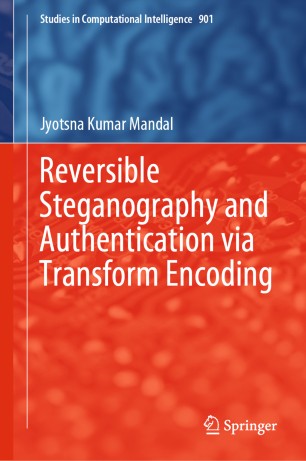

Most ebook files are in PDF format, so you can easily read them using various software such as Foxit Reader or directly on the Google Chrome browser.
Some ebook files are released by publishers in other formats such as .awz, .mobi, .epub, .fb2, etc. You may need to install specific software to read these formats on mobile/PC, such as Calibre.
Please read the tutorial at this link: https://ebookbell.com/faq
We offer FREE conversion to the popular formats you request; however, this may take some time. Therefore, right after payment, please email us, and we will try to provide the service as quickly as possible.
For some exceptional file formats or broken links (if any), please refrain from opening any disputes. Instead, email us first, and we will try to assist within a maximum of 6 hours.
EbookBell Team

4.4
42 reviewsThis book focuses on reversible steganography and authentication via transform encoding, fully discussing in detail the reversibility computation of six transformation techniques: DFT, DCT, wavelets, Z, binomial and grouplet, as well as chaos-based authentication. The book also describes algorithmic approaches based on all transformations along with implementation details and results. Further topics include embedding and extraction into the spatial domain, tuning using GA-based approaches and embedding into imaginary coefficients of the Z domain. Featuring detailed algorithms for encryption and descriptions of all techniques, including embedding techniques for all transform-based steganographic processes, the book also explores the adjustment of pixel values after embedding and presents numerical examples of reversible computations. In the context of chaos-based authentication, it also describes testing the quality of generator is using Monobit, Serial and Poker tests. The book then outlines 15 test cases recommended by NIST fifteen test cases, along with their implementation on six evolutionary algorithms for neural cryptographic systems in the context of wireless computations – TPM, KSOMSCT, DHLPSCT, CHDLPSCT, CTHLPSCT and CGTHLPSCT – and verifies their satisfiability based on the implementations of these six techniques. Lastly it presents various metrics of image processing systems. This book is a valuable reference resource for research scholars, PG/UG students and practicing engineers